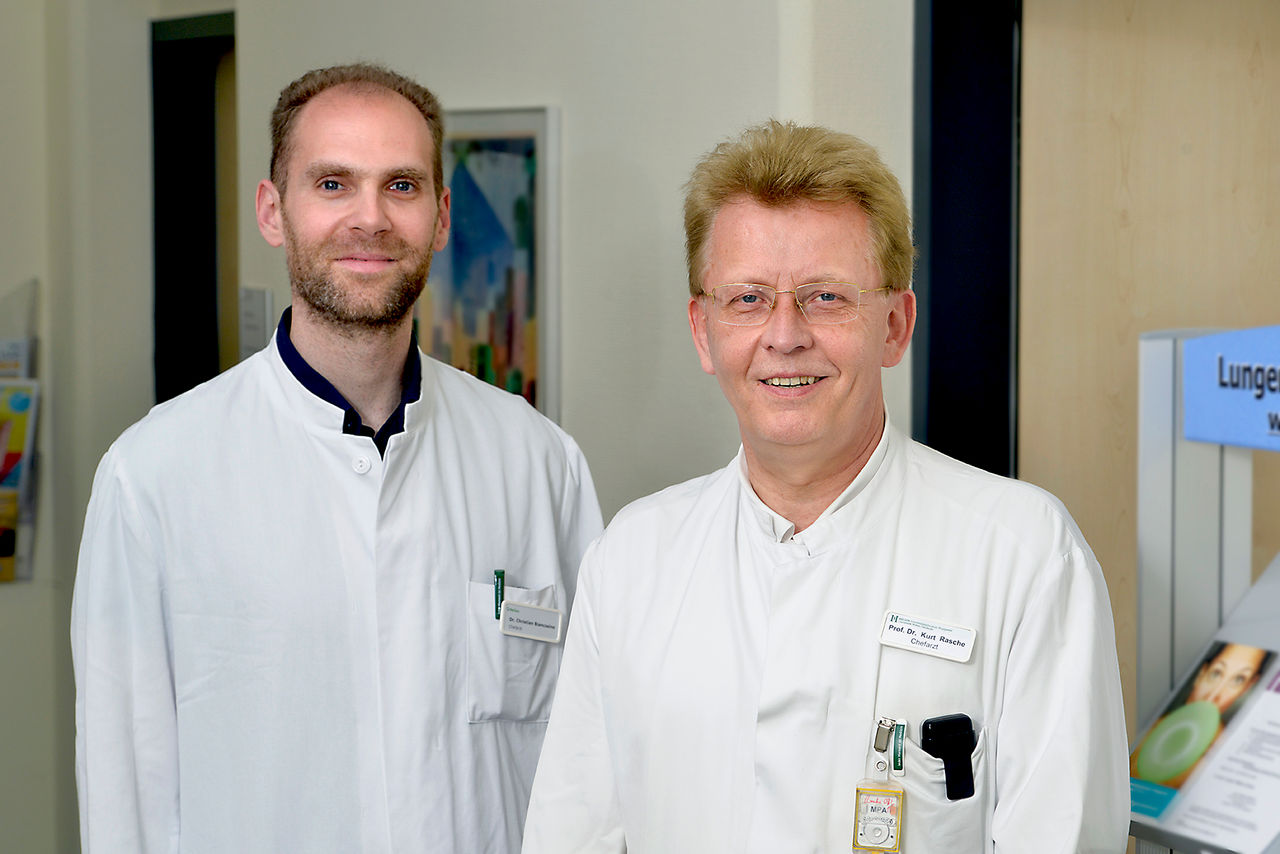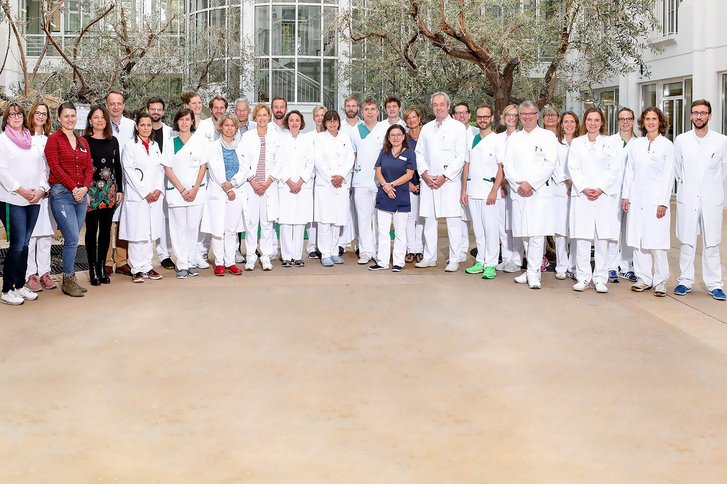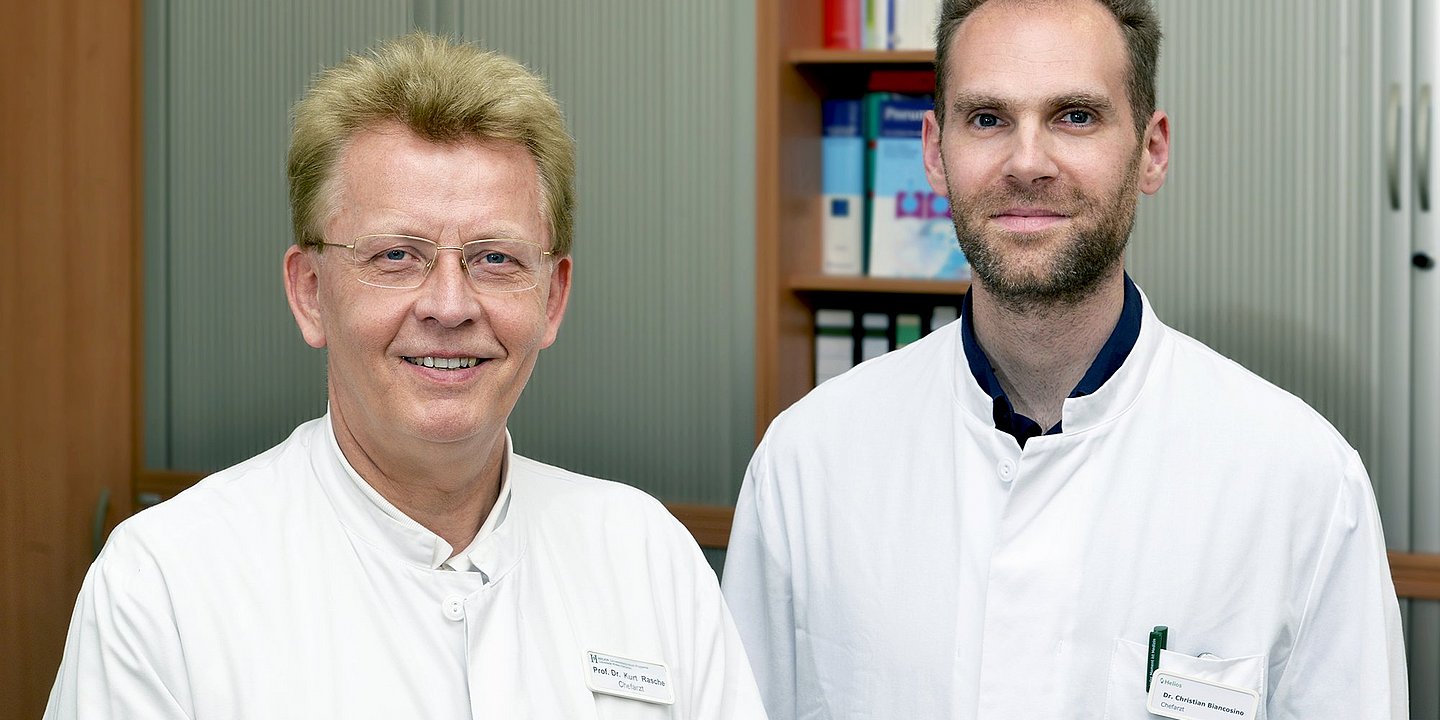
Lung cancer: the underestimated danger - expert interview at Helios University Hospital Wuppertal
Lung cancer remains one of the most common and deadliest types of cancer worldwide. Around 55,000 new cases are diagnosed in Germany every year. Prof. Dr. med. Kurt Rasche, Director of the Clinic for Pneumology, Allergology, Sleep and Respiratory Medicine and Head of the certified Lung Cancer Center, and PD Dr. med. Christian Biancosino, Chief Physician of the Clinic for Thoracic Surgery at Helios University Hospital Wuppertal, explain in an interview.
"The most common cause of cancer in industrialized countries is actually the inhalation of tobacco smoke. Smoking not only leads to lung cancer, but also promotes many other types of cancer, including cancer of the oral cavity, larynx, oesophagus and other organs."
explains Rasche.
Although the harmfulness of tobacco smoke is generally known, many people often have no real awareness of the actual dangers.
"The sad truth is that smokers have twice the risk of dying from cancer,"
emphasizes Dr. Biancosino.
According to the Robert Koch Institute (RKI), nine out of ten cases of lung cancer in men and at least six out of ten in women can be attributed to active smoking. Cigarette smoke contains many carcinogenic substances, including polycyclic aromatic hydrocarbons, N-nitrosamines, aromatic amines, aldehydes and radioactive elements. These cause damage to the genetic material of cells, known as DNA, which can normally be repaired. In smokers, however, these repair systems are impaired, which increases the risk of the cells undergoing malignant changes.
"But smoking is not the only possible cause of lung cancer; exposure to pollutants, infections or hereditary factors can also be the cause,"
says Rasche.
"When treating lung cancer, our patients benefit from the close, interdisciplinary collaboration here at HUKW," adds PD Dr. med. Christian Biancosino, Chief Physician at the Clinic for Thoracic Surgery. "The patient receives all the expertise from pulmonary medicine, surgery, oncology, radiotherapy, pathology, radiology and nuclear medicine. The lung cancer patient experiences direct added value through the work of the certified center under one roof.
Medicine distinguishes between two main types of tumors of the respiratory organ: small cell and non-small cell lung cancer. With a share of 80 percent, non-small cell lung cancer is far more common. It is also particularly suitable for targeted therapies that directly target the cells of origin. "Earlier diagnosis is important. Many people don't realize that the chances of recovery from lung cancer are particularly high if the disease is detected early," says Rasche. "True to the motto: once the cause has been determined, the path to suitable treatment is not far away."
Significant progress has been made in thoracic surgery in recent years.
"We can operate on the majority of operable patients in a minimally invasive and therefore particularly gentle way. Through very fine incisions and without opening the entire chest. This not only makes the entire surgical procedure much more comfortable, as the healing time of the wounds is shorter. This method can also be offered with a high degree of safety to patients with serious concomitant illnesses and advanced age,"
Biancosino explains in detail.
Where do the two experts see the future of lung cancer treatment? "In precision medicine," they both agree. "By understanding the genetic and molecular basis of lung cancer, we can individualize and apply therapies even more specifically." Prof. Rasche underlines the importance of continuous research. "When we talk about lung cancer, we also have to talk about prevention," the two doctors explain:
"Regular screenings, especially for people with an increased risk due to family or occupational history, help to detect lung cancer early and improve the chances of recovery. Promoting a healthy lifestyle, which includes regular exercise, a balanced diet without a lot of alcohol and tobacco, is also of great importance in reducing the risk of lung cancer".
-
More information about Helios Hospital Wuppertal
-
More information about Prof. Dr. med. Kurt Rasche
-
More information about Dr. med. Christian Biancosino


